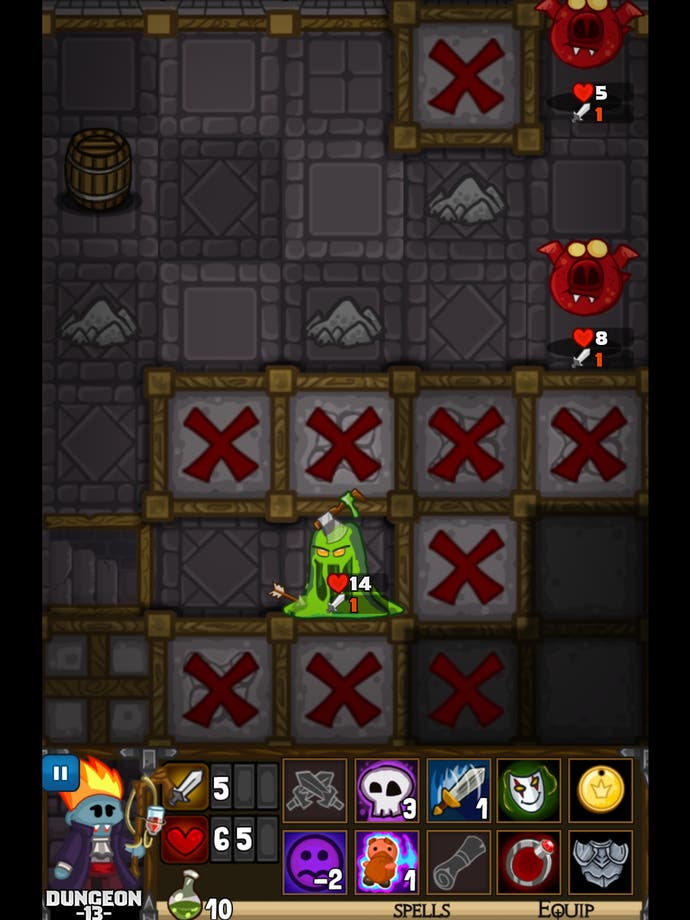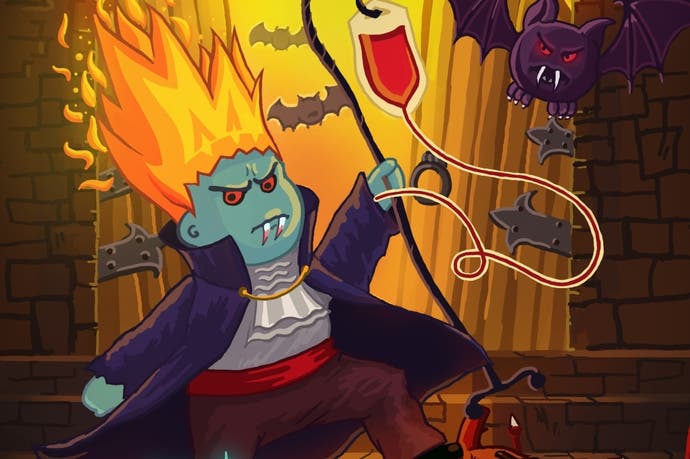Dungelot review
Hidden depths.
Dungelot's name probably seemed smart at the time, yet I can't help but feel it does this fizzingly clever roguelike no favours at all. That first syllable, 'Dunge' - urgh. Thankfully, Eurogamer knows better than to judge an app by its icon, because it turns out Dungelot is a cracker.

Dungelot's visual style is a little cutesy, and its early stages may well fool you into thinking this is some sort of casual roguelike. Your hero is represented at the bottom of the screen during the game, but isn't physically 'in' the dungeon. Instead, you tap squares to show what's beneath them, and chain little paths through each floor as best you can. Each level has a key on it somewhere and a locked door to the next level - and that's pretty much all you can guarantee.
What is great about Dungelot is how it marries this exploration side to its levelling; you never have to fight everything on a level, but as you descend you need to make sure to fight enough. The heroes you play come with inherent skills which can be boosted between games by spending the gold accumulated while playing, but the basic levelling is much simpler - attack power. Attack starts at 1-3 across the classes, and enemies don't have much more health than this for the first few floors. But almost every time you fight an enemy, it will deal damage, so getting the curve right, on what seems like an insultingly simple maths challenge, becomes a matter of life and death long before you realise.
Dungelot's classes seal the deal. The starter class is a Paladin, capable of dealing double damage to undead enemies (incredibly useful) and levelling into a total bruiser - one certainly capable of taking you past the low level threshold for unlocking the Vampire. The Paladin's health has to be managed super-carefully, because replenishing it depends entirely on luck, but the Vampire's chances are much greater, thanks to occasionally draining blood after attacking.
After this, I've managed to unlock a beer-brewing dwarf, which you've got to love, although the assassin and alchemist classes remain out of reach - because, after around the 20th floor, Dungelot gets tough. A steep increase in enemy variety and aggressiveness means that players who haven't planned ahead will be quickly shut down, and some games end with you being rather brutally bled out. It seems like such an easy thing at first, yet Dungelot is anything but.
The thing I particularly admire about Dungelot is the interface - uncovering tiles as a means of playing a roguelike isn't new, but tapping tiles is a good way to play one on a touchscreen. It also makes everything about your progress so clear, and parsing its levels is an easy pleasure; the only challenge comes, as it should, from the dungeon itself. I have no idea how deep Dungelot goes, but every so often I pop back to try to find out.

